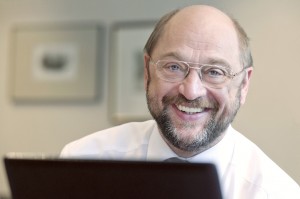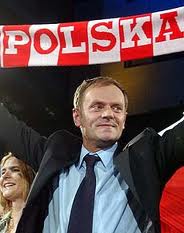The new government will be born during the Italian presidency, the political forces will present
a candidate to the voters. The centre-left will support Schulz, the centre-right has not yet chosen
 The European parties are trying to bridge the democratic gap that governments do not want to deal with, and the first step is the “direct” election of the President of the European Commission. The governments that, under the Treaties, have the power to choose the Ec president, but it would be very difficult to deny the nomination of a person indicated by the citizens. It is the birth of European politics.
The European parties are trying to bridge the democratic gap that governments do not want to deal with, and the first step is the “direct” election of the President of the European Commission. The governments that, under the Treaties, have the power to choose the Ec president, but it would be very difficult to deny the nomination of a person indicated by the citizens. It is the birth of European politics.
The idea was born in the Socialists group that, to do favour to the Italian Democratic Party which include also the former “Margherita” catholic party, now in the European Parliament is called “Progressist and democratic”, also if the 90 percent are social democrat. They are the second largest force in the Parliament and this time, differently form 2009, says Gianni Pittella (Pd), First Vice President of EP (ie, the most voted) “there is a proposal that begins to move”, dragging the other political forces. MEPs press because they want to walk towards political union, but there is strong resistance in governments, and then “you have to start doing what you can do – says Pittella – which means to launch the candidacy for the presidency of the Commission by the main European political parties”. The natural candidate of the progressives is there, just a step above Pittella, “the socialist candidate for the Commission is the President of the European Parliament Martin Schulz (pictured left), because he is the most authoritative and recognized personality at European level, that showed great driving ability of Parliament. He is a strong man, but open to dialogue”.
If the centre-left does this step, the centre-right, that is the Popular party, can not stand behind, and they are also working ti find a candidate to link with their lists, as confirmed by Mario Mauro, chairman of the delegation of the Italian Pdl, whi stress that “at the moment there are no names”. Actually others in the corridors pronounce some names. There is an European Commissioner in charge, the Frenchman Michel Barnier, chosen by Nicolas Sarkozy to manage the single market, then there is a prime minister in office, the Polish Donald Tusk (pictured right), but there is also Herman van Rompuy, whose current mandate will expire in two years and who seems to be ready to move from the South side of the Rue de la Loi in Brussels, where he has his office President as the European Council, to the north side, where there is the  Commission building.
Commission building.
“Finally we will make a European election campaign, on a real European policy agenda and not on national or local issues. This would be be, finally, a real politicization of the Union “, hopes Pittella. This act as no legal value, it will be nothing more than a political constraint for governments that must then choose, in the autumn of 2014, the new President of the Commission. But it would be a real headache for Italy (for Pierluigi Bersani? For Mario Monti?) which will hold, in that fateful second half of 2014, the Union presidency, if the chancellors will chose not to endorse the Parliamen coalition and citizens candidate. Yes, because what emerges is a possible pre-election coalition, something never seen in Europe. Monica Frassoni, co-president of the European Green Party, explains that “we will choose our candidate as soon as possible, certainly by the end of 2013, but we also strive to find a convergence with other progressive parties”. In short, they seek an alliance: “We want to select a Green candidate – says Frassoni – but then if there is a dialogue on a single candidate for centre-left, we could back him. But if there will be an agreement on the name of a Green, we would be even more delighted, of course”.
Lorenzo Robustelli



![Una donna controlla le informazioni sul cibo specificate sulla confezione [foto: archivio]](https://www.eunews.it/wp-content/uploads/2014/12/Etichette-alimentari.jpg)


![Ragazza in biblioteca. Nell'Ue chi studia non lavora e neppure cerca. In Italia funziona ancor più così [foto: Tulane University, Wikimedia Commons]](https://www.eunews.it/wp-content/uploads/2024/11/Girl_in_the_Library_3638661587-350x250.jpg)



